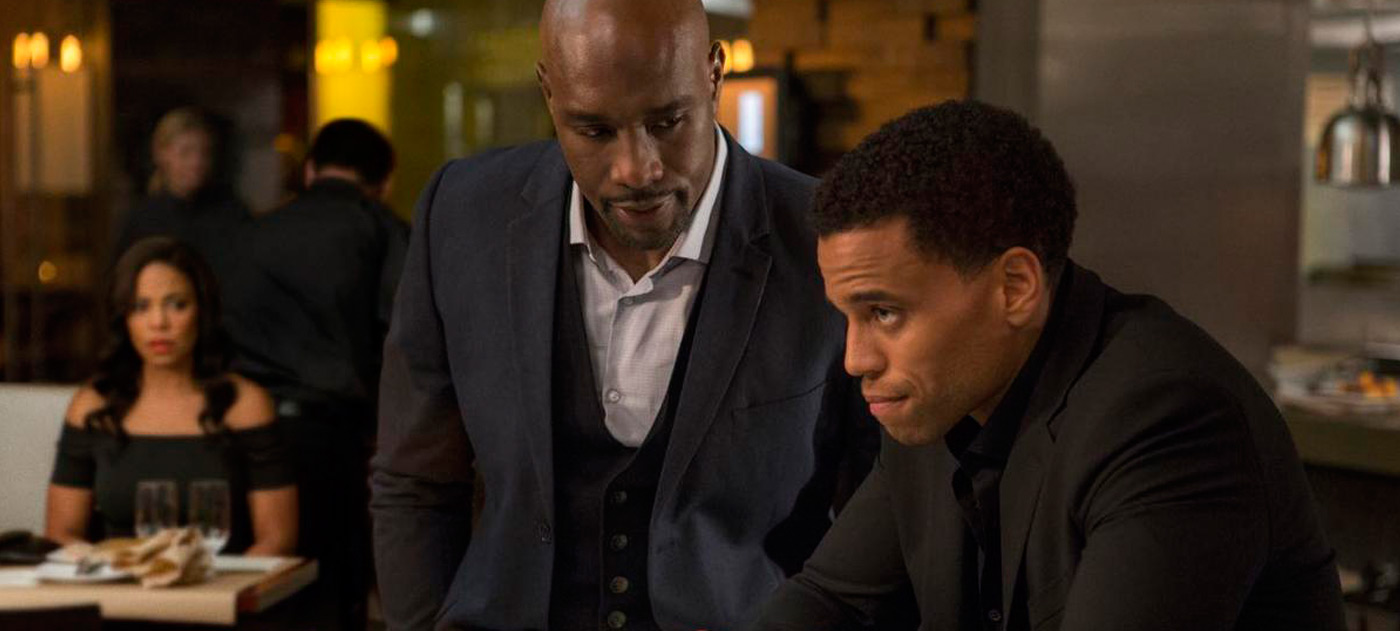Guy Ritchie has always been, if anything, a very stylish director. He launched his career with Lock, Stock and Two Smoking Barrels and Snatch, two very idiosyncratic films that wielded their surprising lowlife vulgarity as a kind of cinematic street art; these early films established Ritchie as an auteur with a hyper-stylized aesthetic that is unmistakably his. In recent years, as the director has become a firm part of the establishment, he has turned his attention to applying this aesthetic to pre-existing brands. First came his two Sherlock Holmes films, which maintained his signature flashy fun, but which were decidedly less personal than his early films had been. This summer, Ritchie releases his latest adaptation, The Man from U.N.C.L.E., based on the 1960s television spy series created by Sam Rolfe. On paper, the filmmaker has done everything right — he stages action set-pieces that are stylish and tons of fun, he fills his film with amusing repartee and visual gags, and (most importantly) he’s cast four of cinema’s most promising young stars in the lead roles. The story he’s telling, however… well, it’s boring as hell. And so, despite having many elements that display so much promise, The Man from U.N.C.L.E. is ultimately one pretty empty film-going experience.
It’s 1963. The United States and the Soviet Union are both hunting for Gaby Teller (Alicia Vikander, Ex Machina), a young woman from East Berlin whose father was a scientist who built nuclear weapons for the Nazis. CIA agent Napoleon Solo (Henry Cavill, Man of Steel) and KGB agent Illya Kuryakin (Armie Hammer, The Social Network) each aim to extract Gaby before the other man can, hoping she can lead them to her father; whichever country can find Udo Teller first will pull ahead in the Cold War arms race. But soon enough Solo and Kuryakin must reluctantly work together, as a new threat emerges to both of their countries — Victoria Vinciguerra (Elizabeth Debicki, The Great Gatsby) and her husband, both Nazi sympathizers, are also looking for Dr. Teller, so that he can build them a private nuclear weapon of their very own.
The cast, it must be said, is the best thing The Man from U.N.C.L.E. has going for it. All four leads are enormously charming and cleverly droll, fully understanding how to navigate Ritchie’s playful tone — and all while keenly playing their director’s game of mix-and-match with their nationalities. As a Brit playing an American spy and an American playing a Russian spy, respectively, Cavill and Hammer are saddled with the trickiest of the accent work, and they both pull off their accents convincingly. (Meanwhile, the Swedish Vikander plays a German and the Australian Debicki plays an Italian. So fun!)
The screenplay by Ritchie and producer Lionel Wigram (the two also share story credit with Jeff Kleeman and David Campbell Wilson), though, puts the whole production at a disadvantage. It’s as if the creative team was so focused on form and style that they forgot to make their story interesting. Indeed, each narrative beat is uninspired and predictable, featuring derivative twists and turns that have been done better in numerous spy movies from years past. Characters double- and triple-cross each other with such regularity that it just becomes gibberish. The action sequences are all totally fun in the moment, but by the time you get home afterwards, it’s difficult to remember any specifics of the story you’ve seen.
If you like the idea of watching four sharply dressed, attractive, intelligent young actors friskily play off each other for two hours, then you might risk seeing this. But if it’s substance or creativity or engrossing storytelling that you’re looking for, don’t bother wasting your time. There’s nothing to see here.










Fantastic Four
Fantastic Four